The Leviton brand needs no introduction, it has been in American homes for over a century. Their latest home EV charging products are the EV32W and EV48W, with 32 and 48-amp outputs respectively. Leviton’s EV chargers are part of a larger push into smart home automation, where connected electric switches, dimmers, and appliances can be automated based on activities and schedules. Leviton sent us the 32 amp EV32W unit for testing. After several weeks of use, we came away impressed.
Our Rating: 4.4/5
What we loved
- Leviton device ecosystem
- Attractive and smart design
- RFID security access cards
What could be better
- The app can benefit from more EV-specific features
- The charging cord could be longer
Hardware Overview
Leviton’s chargers look and feel like premium products in their segment. The main enclosure is a rectangular box with rounded corners and a lip around the perimeter for cable management. The enclosure has a nice matte white finish that looks especially clean against a white backdrop. Although the main enclosure is made of plastic materials, the unit has a NEMA Type 3R weather resistance rating meaning it is designed to withstand rain, snow, and cold temperatures. The front of the device has a large and bright status indicator LED and an RFID card reader that can be used to restrict charging. This is especially useful for outdoor or underground parking installations. Three RFID access cards are included.
The wall mounting plate is a single-piece metal bracket, and four heavy-duty bolts are provided. Leviton’s EV charging stations are intended for hardwired installation by a licensed electrician. Although a short input cable is provided, there is no NEMA 14-50 plug option.
Another thing to note is that amperage modes are not adjustable. There are no settings to de-rate the charging station to a lower amp setting. Leviton offers this product in two SKUs, a 32-amp version that requires a 40-amp circuit breaker, and a 48-amp version that requires a 60-amp circuit.
When the charging station is not in use, the 18-foot-long cord can be wrapped around the EVSE unit for storage.
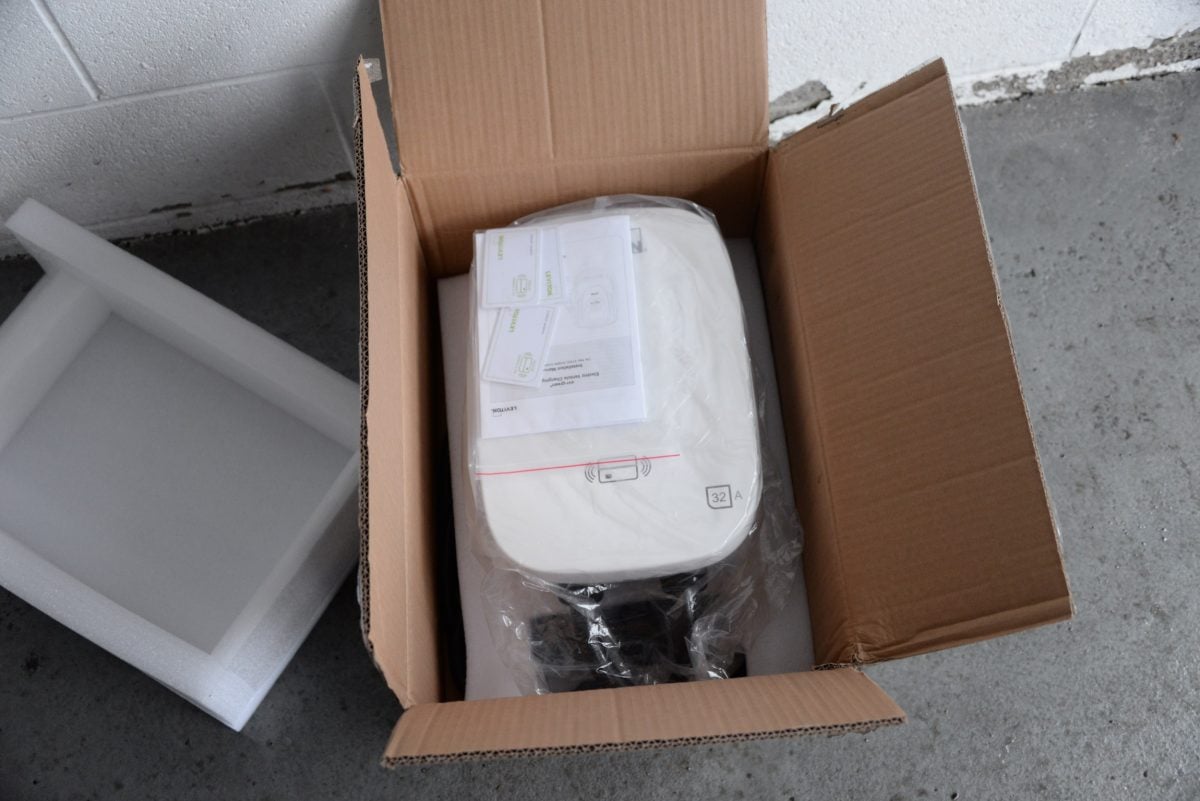
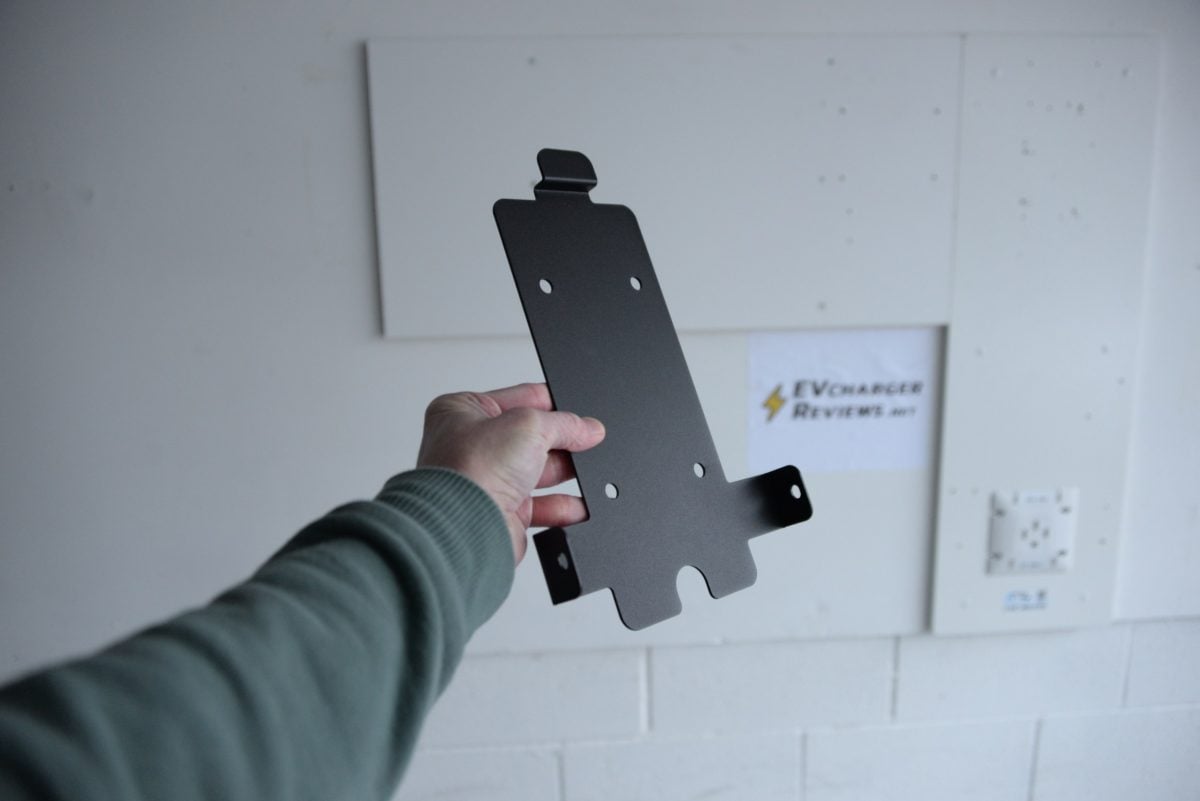
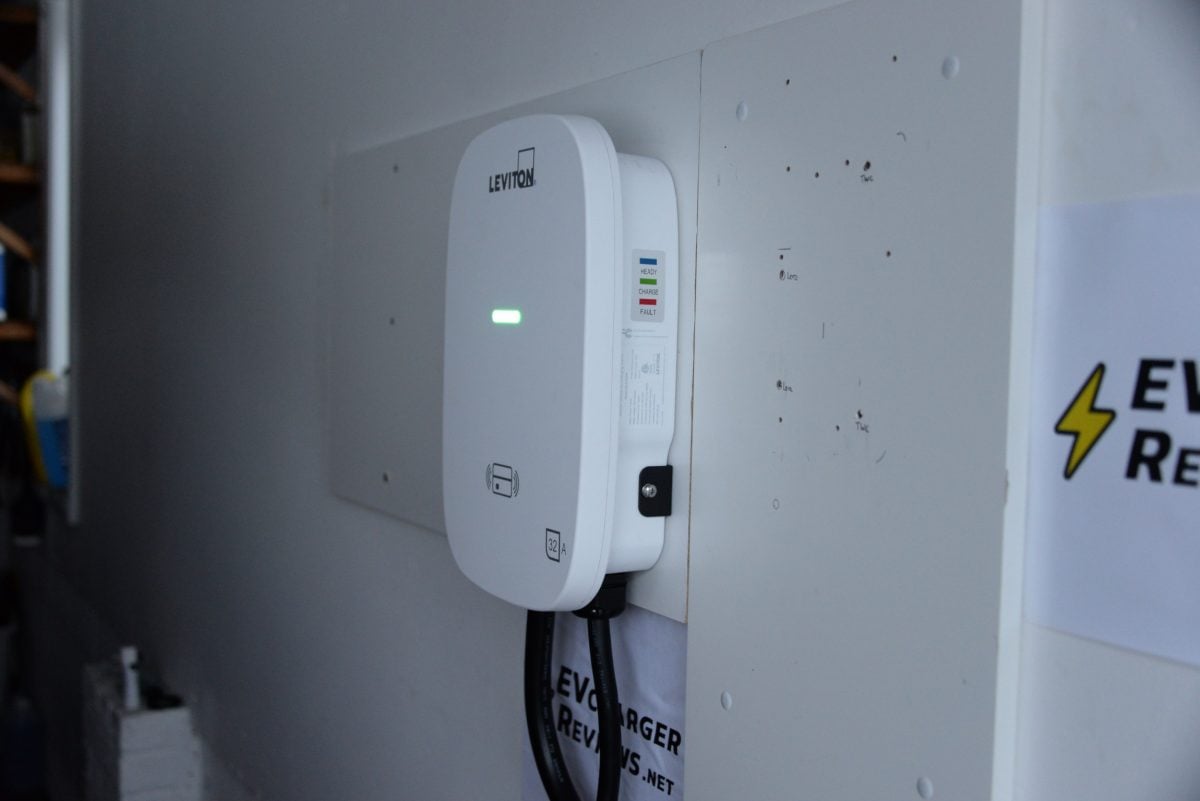
Charging Cord and J1772 Connector
The charging cord on Leviton’s various EV chargers is 18 feet in length. While it is not the longest cord in the segment, 18 feet is sufficient to reach any corner of your vehicle as long as you plan your installation location correctly. Our main test vehicle is a Tesla Model Y with the charging port on the opposite side of our garage wall, and an 18-foot cord more than long enough to reach, with some slack. However, reaching a second EV in the adjacent parking spot may be a stretch.
The cord on our EV32W 32-amp unit includes #10 AWG wiring. (The 48-amp unit includes thicker #7 AWG wiring) This setup is sufficient to safely conduct 32 amps without any overheating issues. This configuration also means the cord is relatively thin and easy to handle and loop around the charging station for storage. The rubber insulation material used on this cord stays decently pliable and soft at near-freezing winter temperatures from our experience. We measured the cord to be just 16.1 mm thick on our 32-amp test unit, which is pleasant to hold and handle versus some of the heavier cords we are used to.
The J1772 connector is white to match the aesthetic of the main box, with a black plastic release tab. It feels a bit light in the hand but should be able to withstand impacts and drops. We had no performance or fitment issues with this connector.
Leviton’s EV chargers all come with J1772 connectors at this time. You will need an adapter to connect a Tesla or any other NACS-equipped EV.
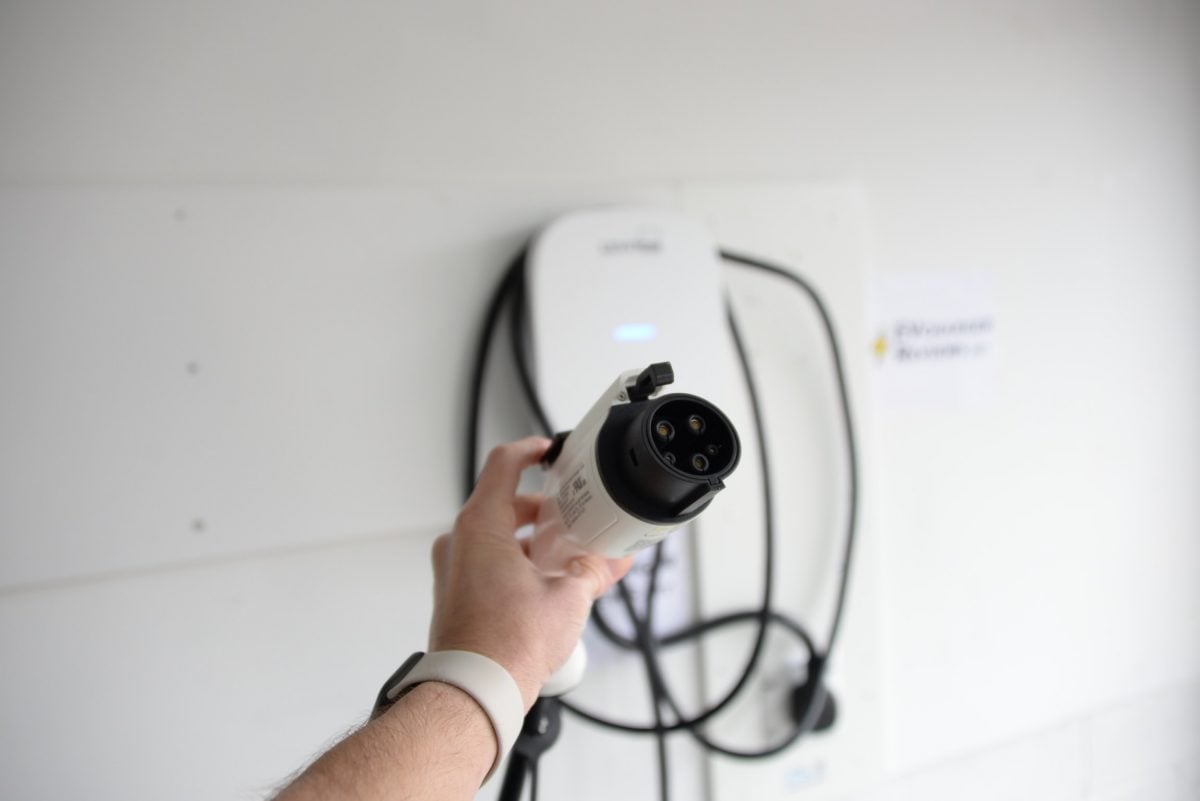
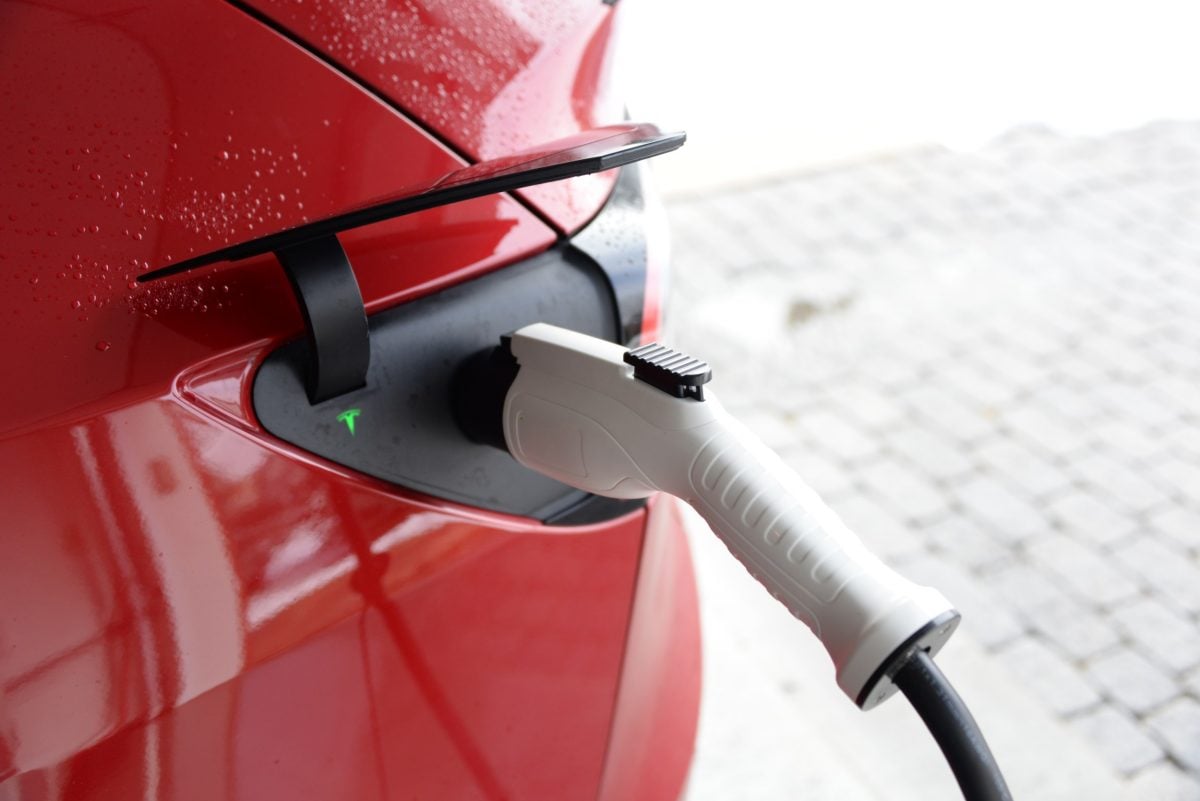
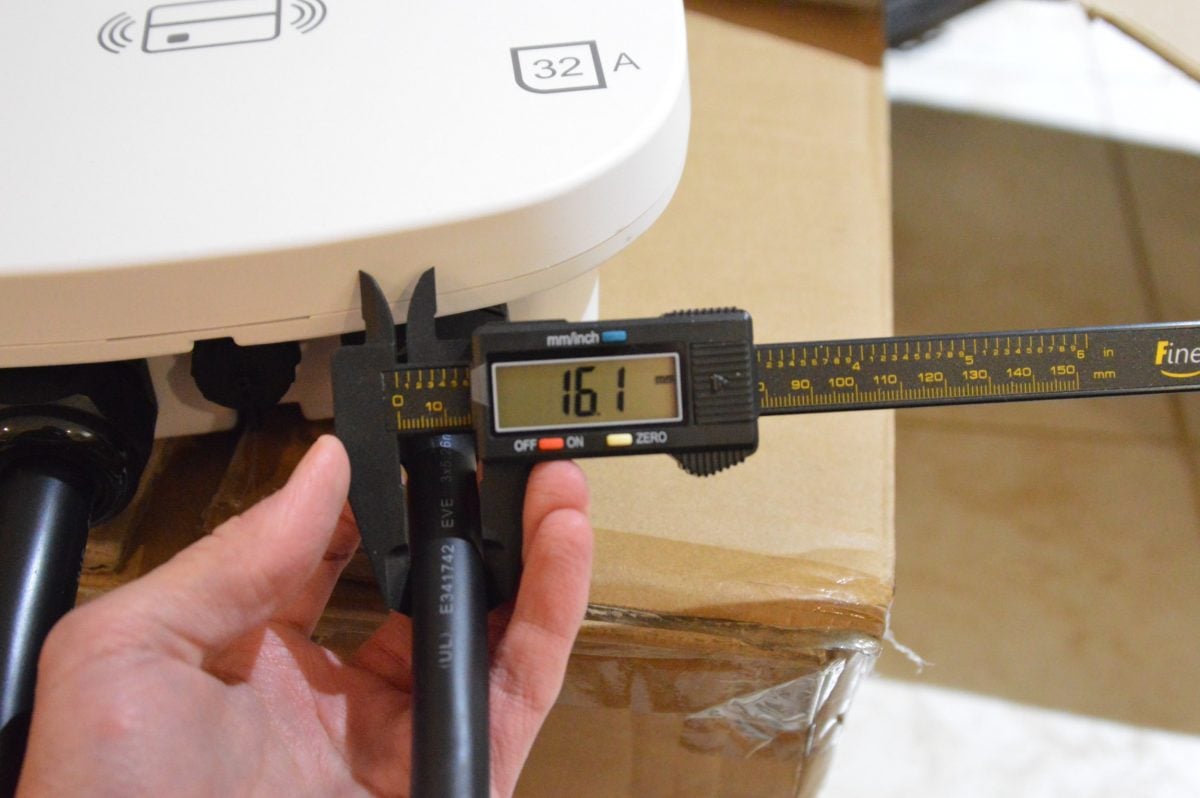
Charging Performance and My Leviton Ecosystem
During our time with the EV32W, we did not run into any performance issues or error/fault messages. It has been a reliable home charging station, that can operate at full speed for many hours without thermal issues. Some of our longer charging sessions delivered upwards of 55-60 kWh overnight without any issues.
Leviton EV32W and EV48W chargers are networked smart units that connect to the rest of the Leviton ecosystem and the My Leviton app. The Wi-Fi networking signal has also been as solid and responsive as Leviton’s other smart home products.
In the My Leviton app, the EV charger appears as another smart Leviton device. The user is able to see the EV charger status, configure settings, and apply scheduling. The app is also capable of sending notifications when the EV is finished charging.
Leviton’s app is definitely more focused on home automation than EV charging. When the EV is charging, the app view is rather simplistic. We wish there were more EV-specific features in the app such as monitoring session voltages, kWh added, session during, etc., and reporting on long-term energy consumption.
Another small complaint is regarding how Leviton handles charging session completion. When our Tesla reaches the predetermined charging limit of 80%, the Leviton charging station goes into a “Finished Charging” state. Once the charging station enters this state, there is no way (to our knowledge) to resume charging until the vehicle is unplugged and plugged back in again. If you attempt to resume charging from the vehicle, the Tesla will report that the changing equipment is not ready.
When would it be useful to resume a continuous charging session? Many EVs (like Tesla) allow the driver to schedule departures at a recurring time for commuting. A Scheduled Departure will precondition the cabin and EV battery for optimal performance prior to departure while the vehicle still has grid power. However, this is not currently possible with Leviton if the charging station enters the “Charging Finished” state in the middle of the night. The EV will not be able to pull power from the grid prior to departure in the morning. We’re hoping this can change with future software updates.
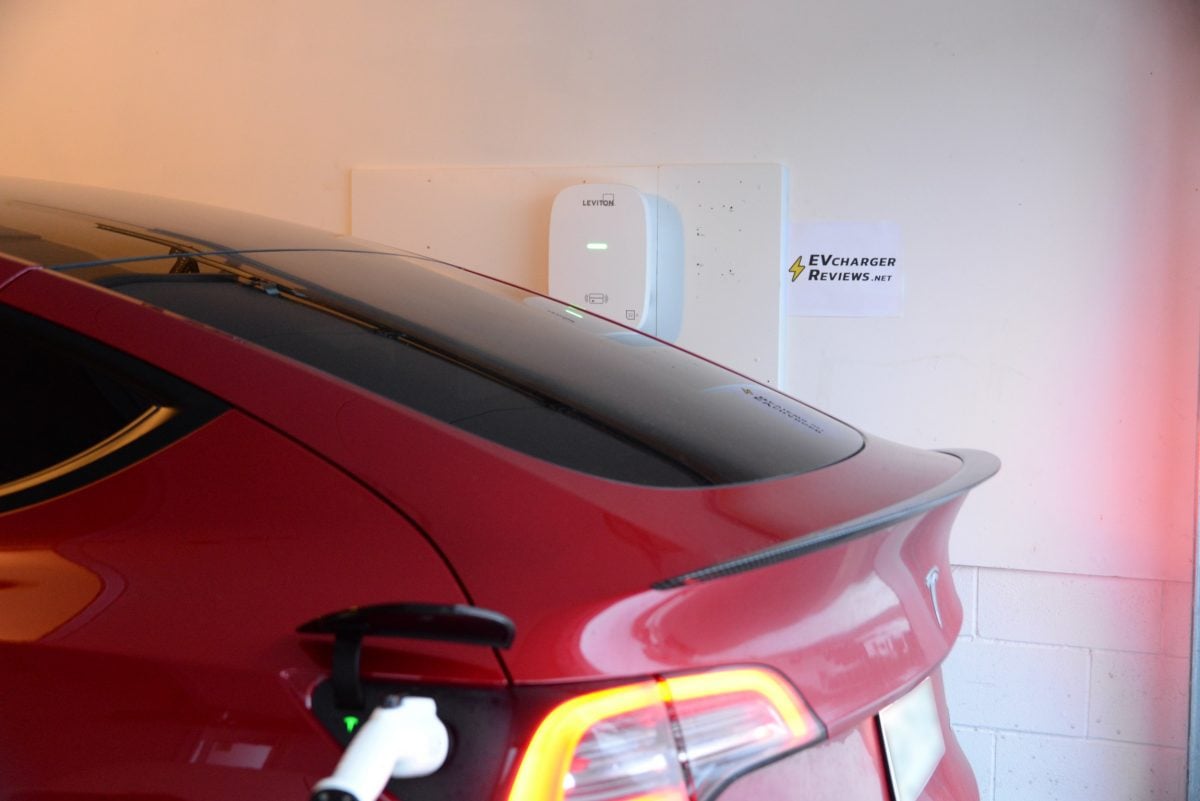
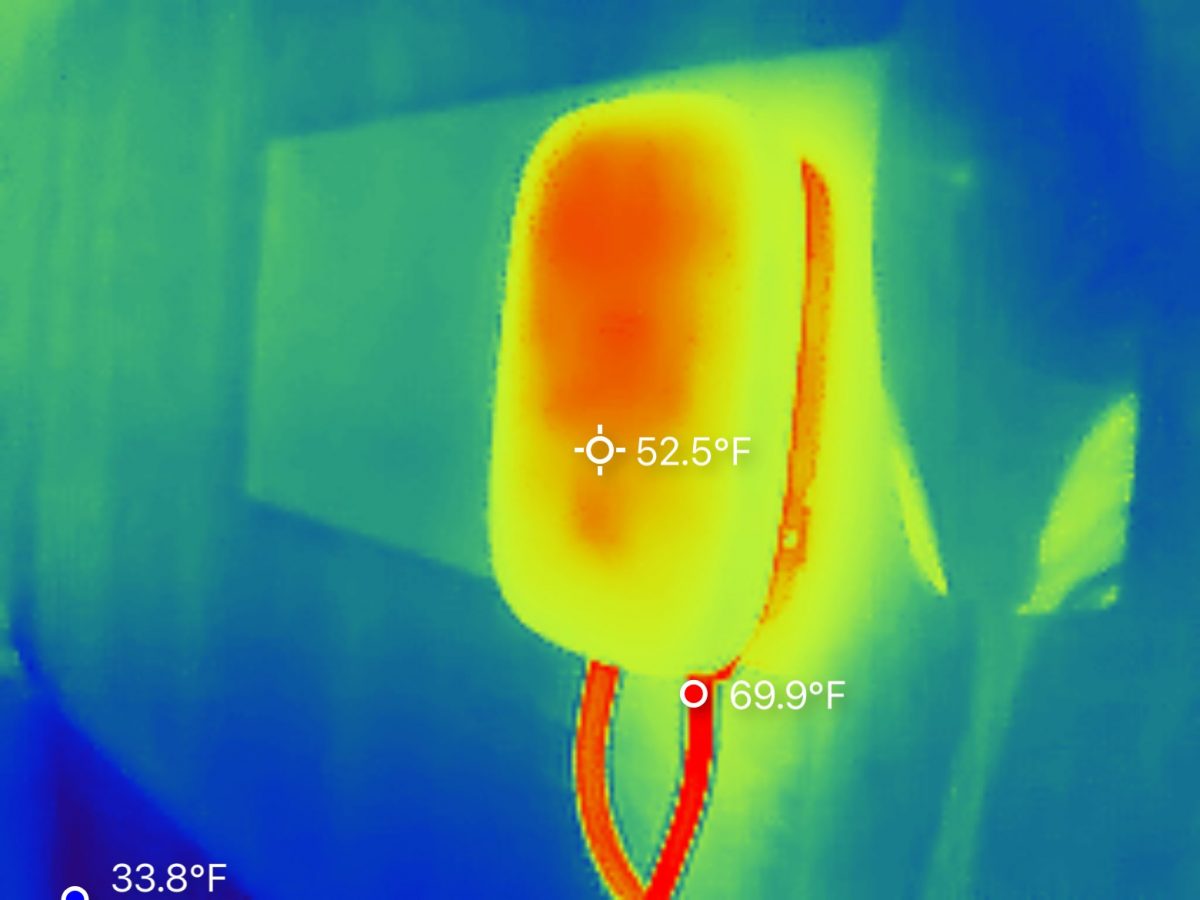
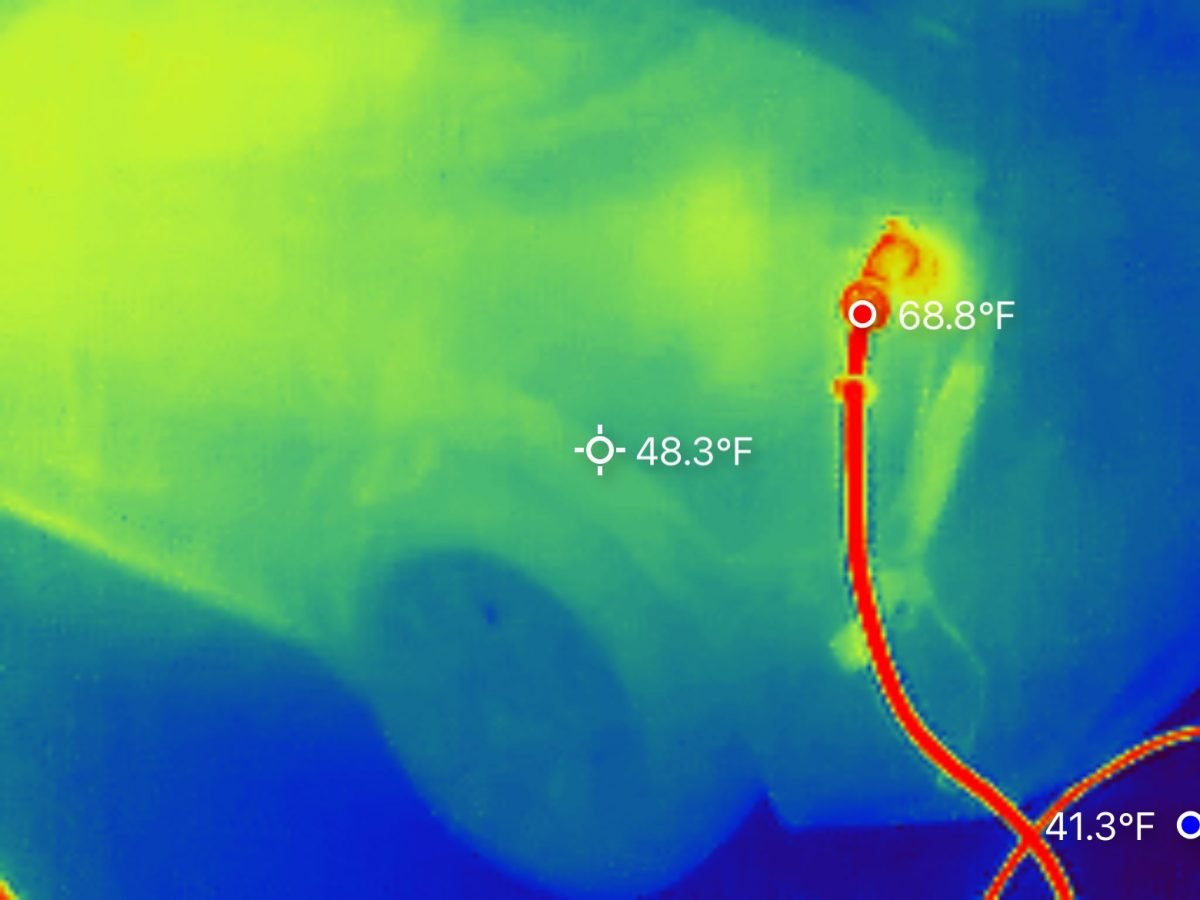
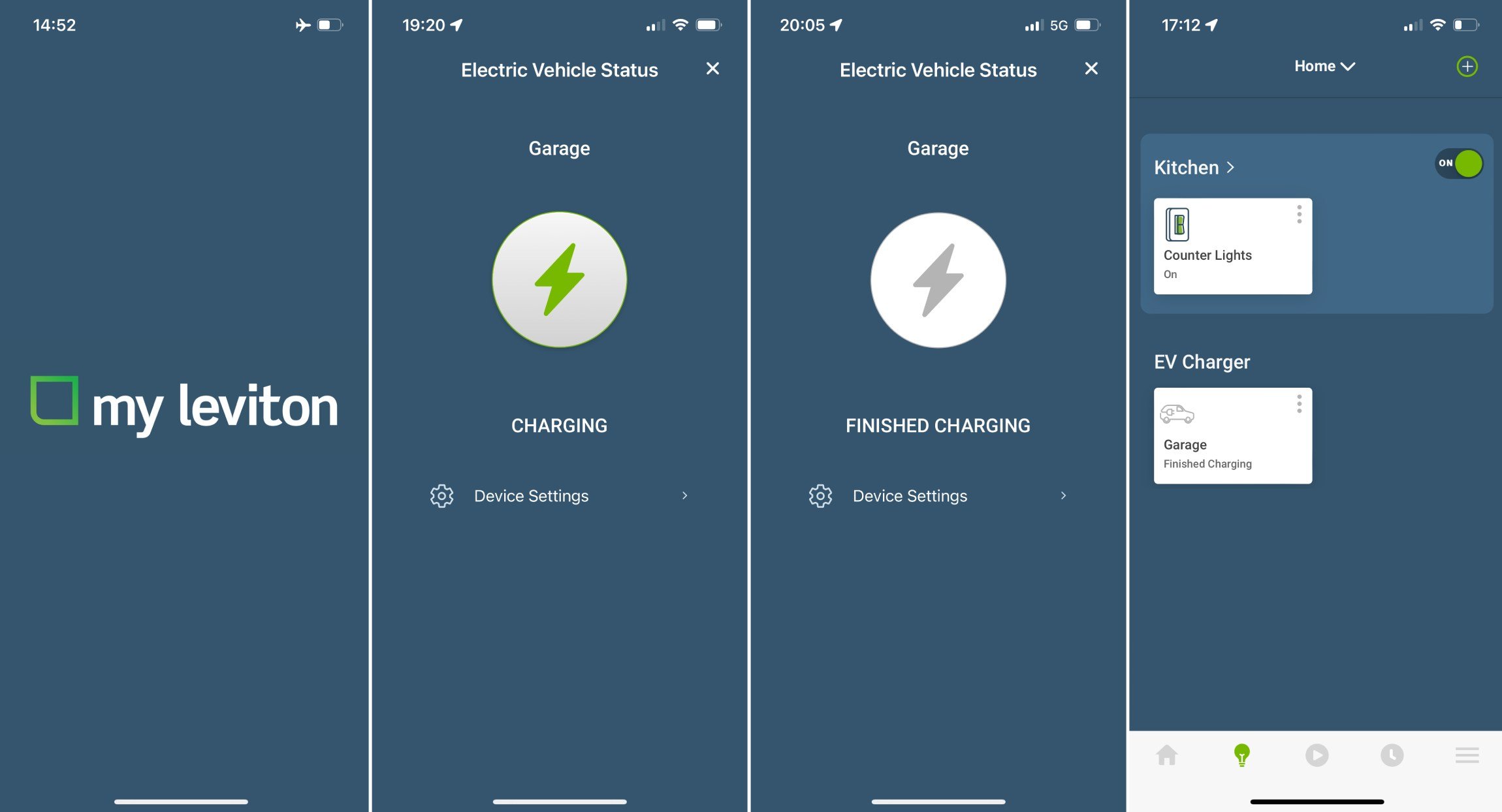
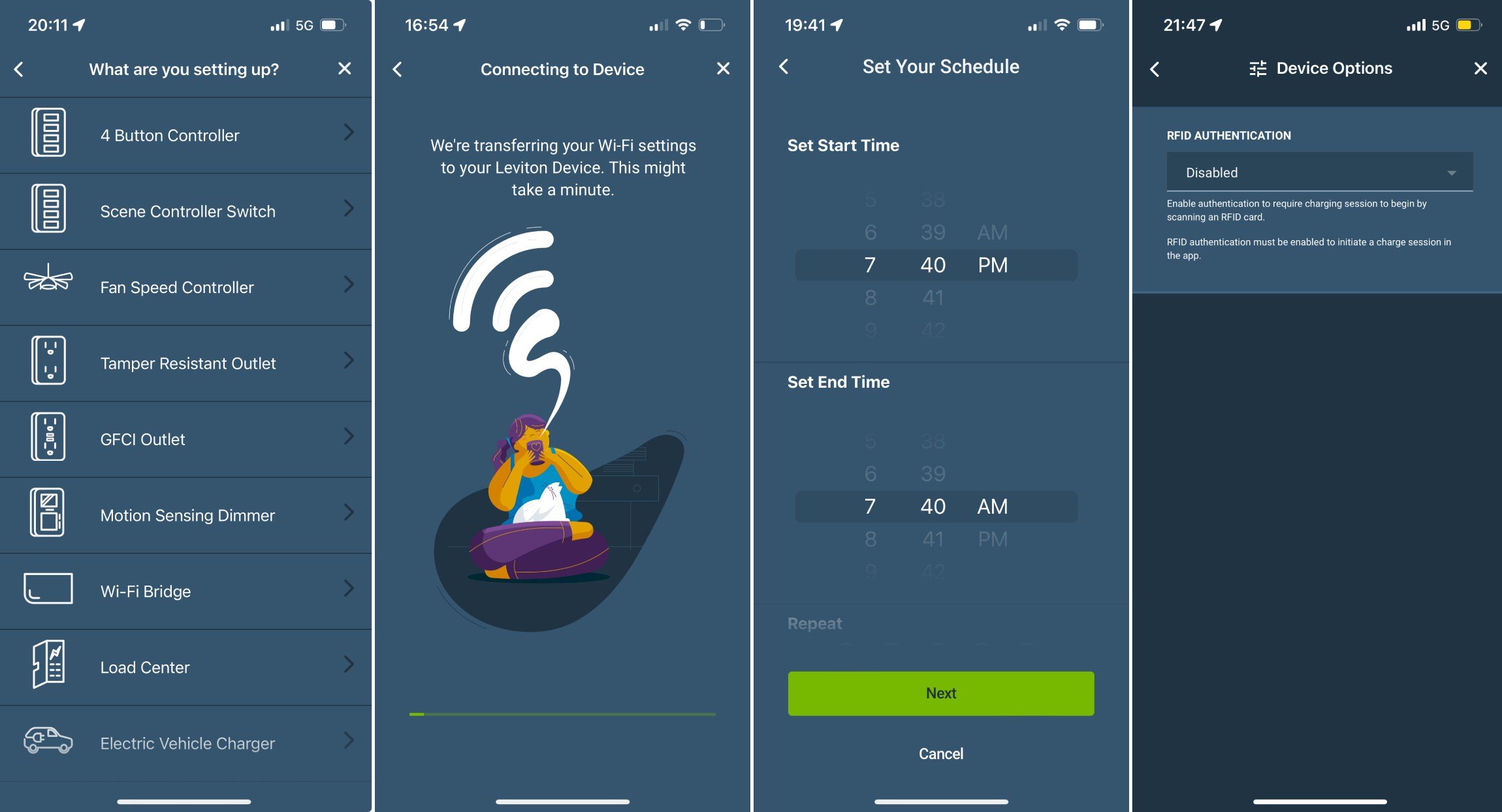
Conclusion
I enjoyed using the Leviton EV charger for this review, and I will keep it connected for longer-term testing. The smart EV chargers from Leviton are easy to recommend; they are a great choice for homeowners who already have Leviton’s smart switches/dimmers, or for new EV owners who are interested in getting into home automation. Leviton is a reputable brand with a long history of quality, and they back their EV charging products with a two-year warranty. The Leviton EV chargers are UL-listed and EnergyStar-certified. We only wish the app had additional EV-specific features and the ability to resume a finished charging session.
Shopping Options
Full Review Gallery
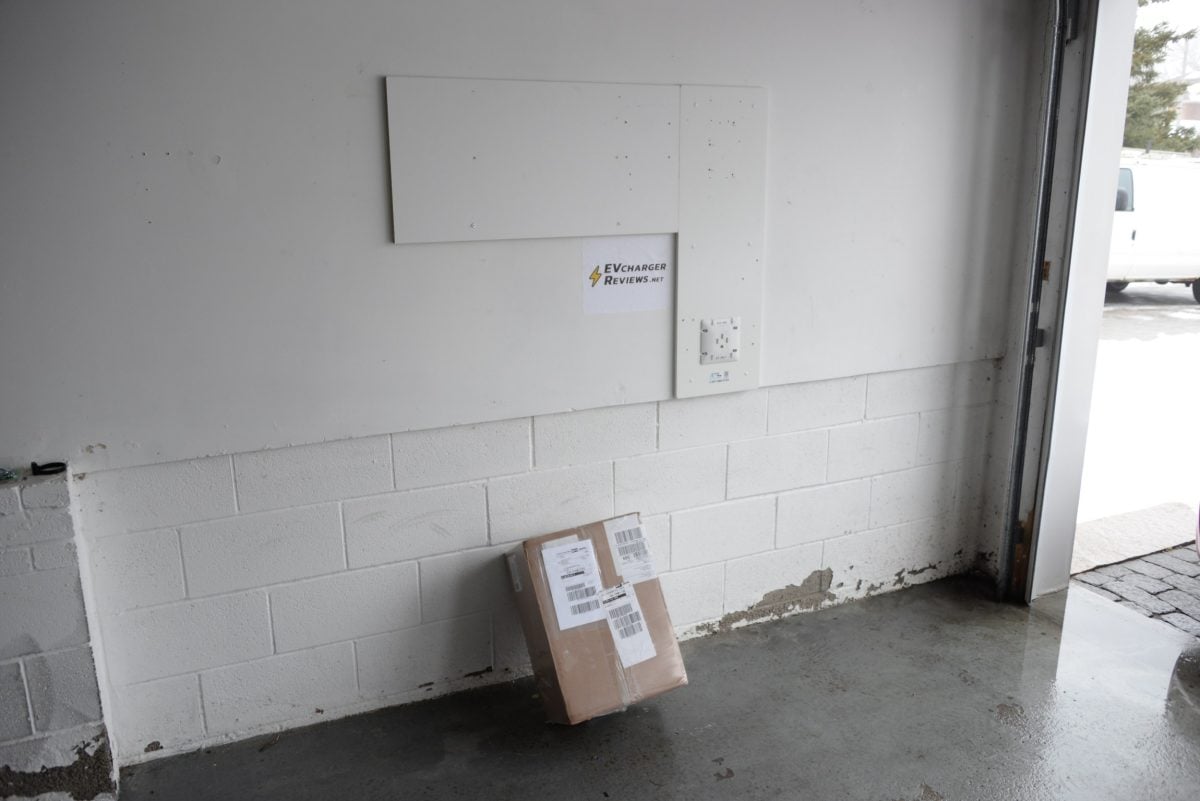

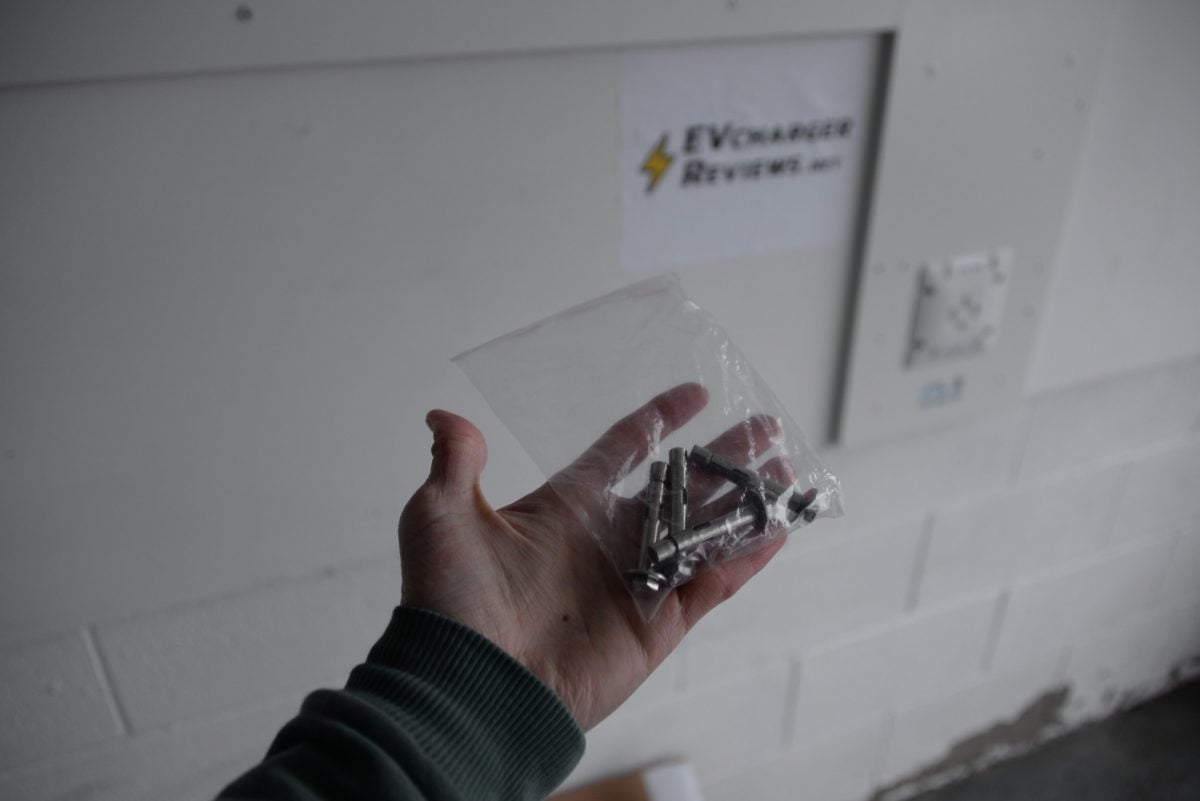
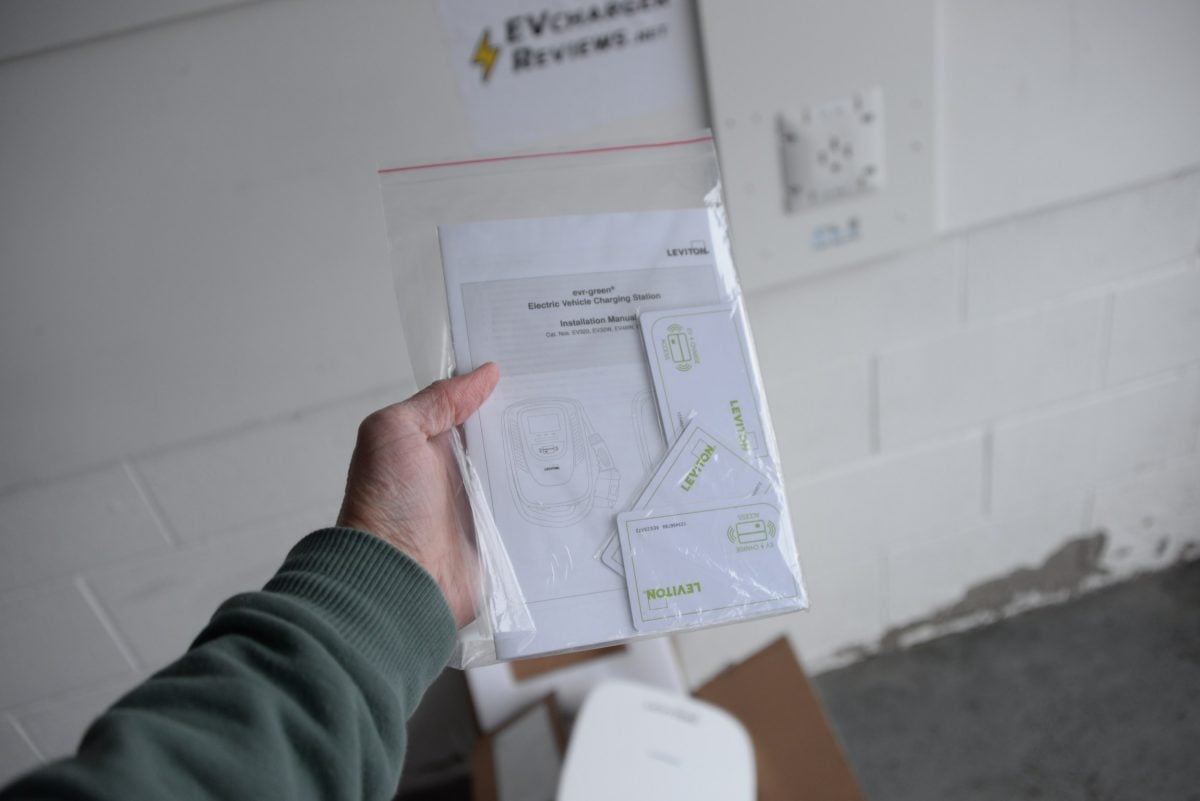
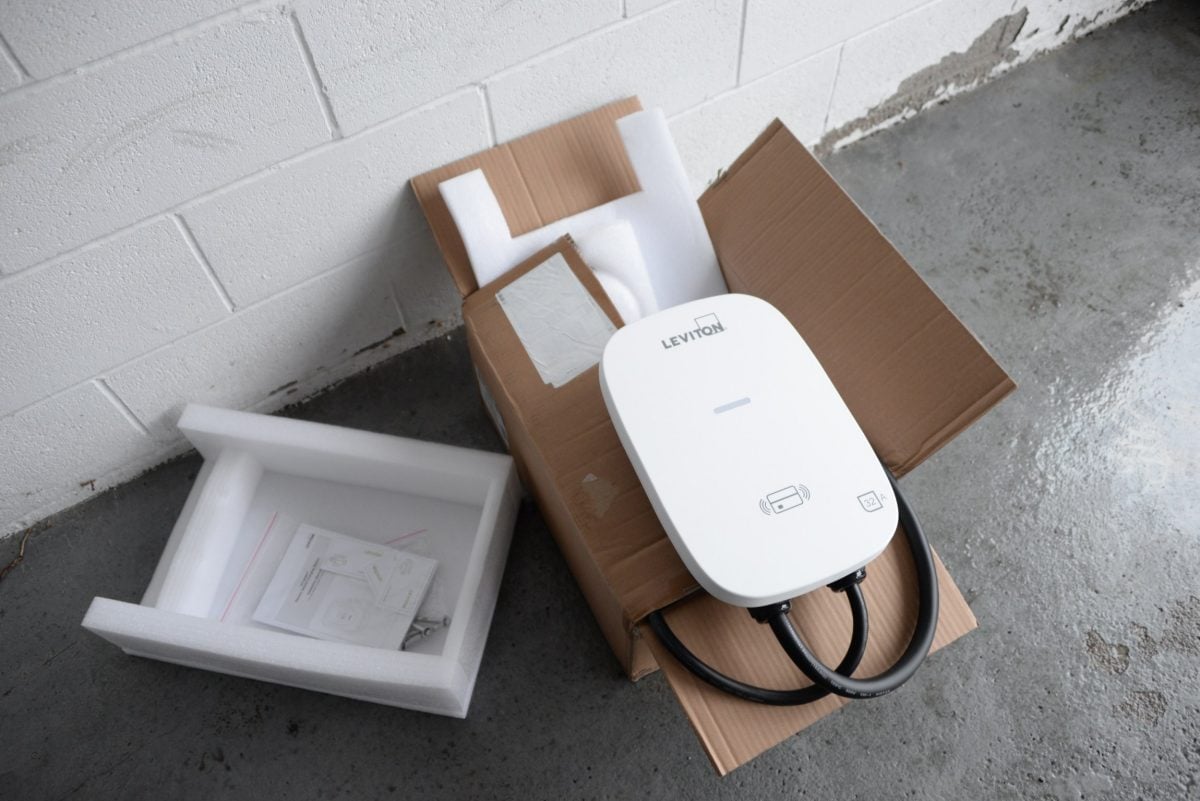
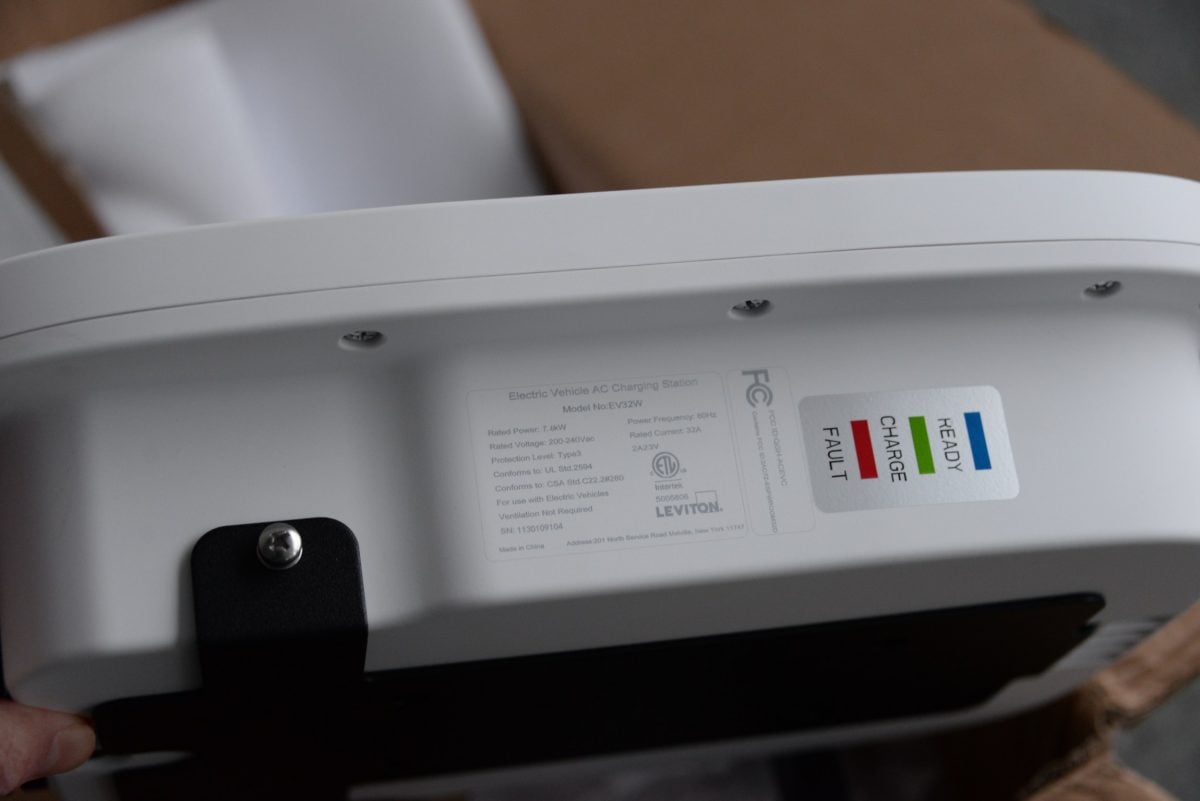
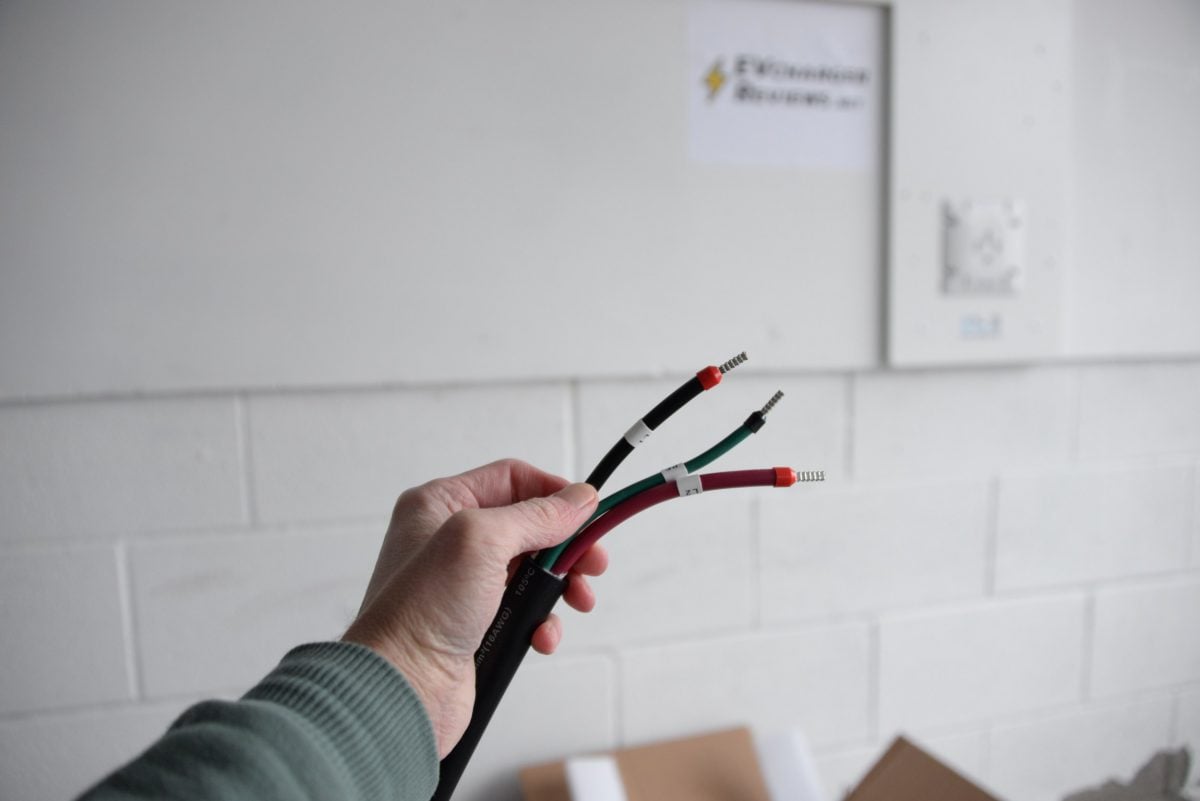
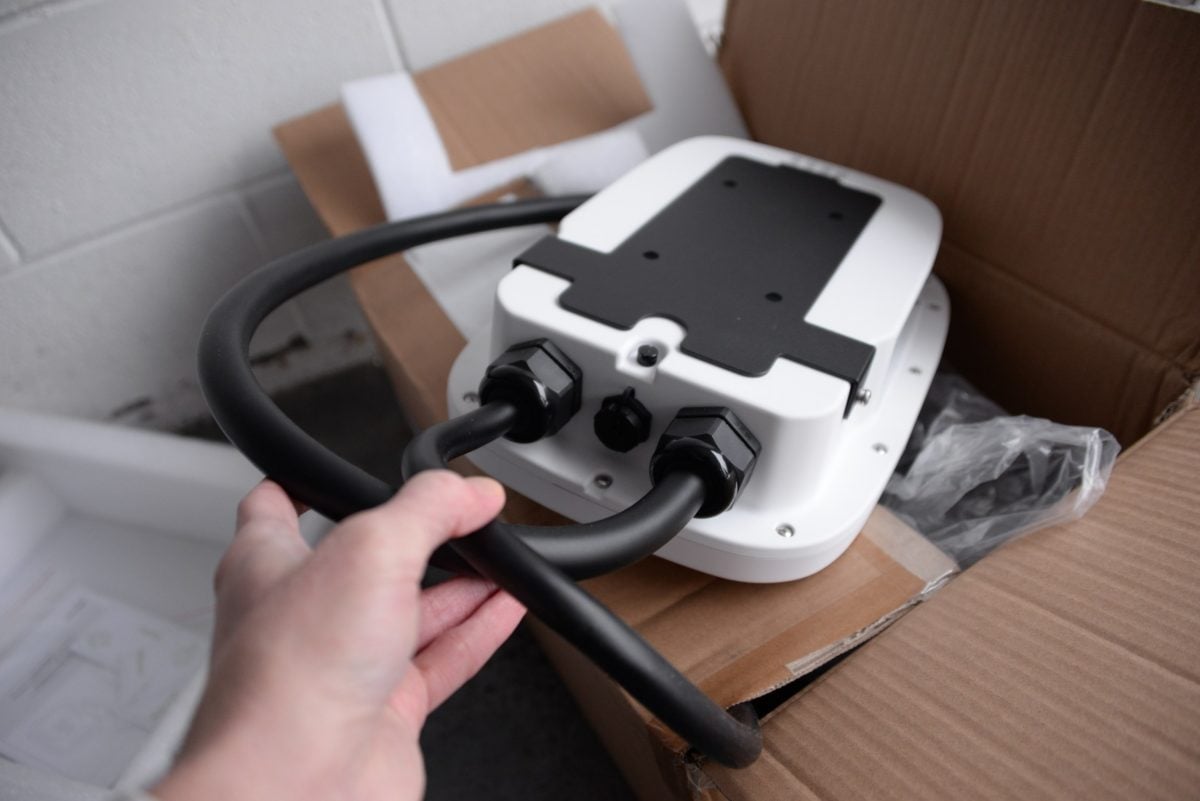
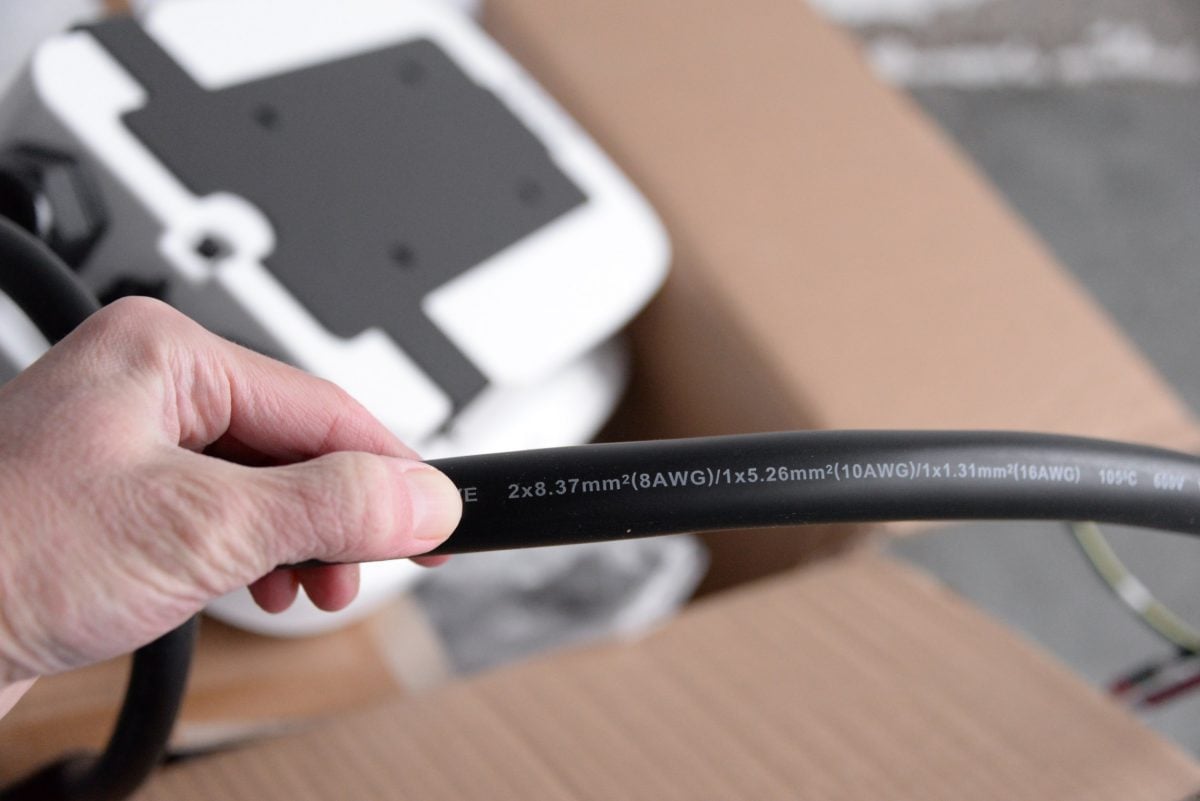

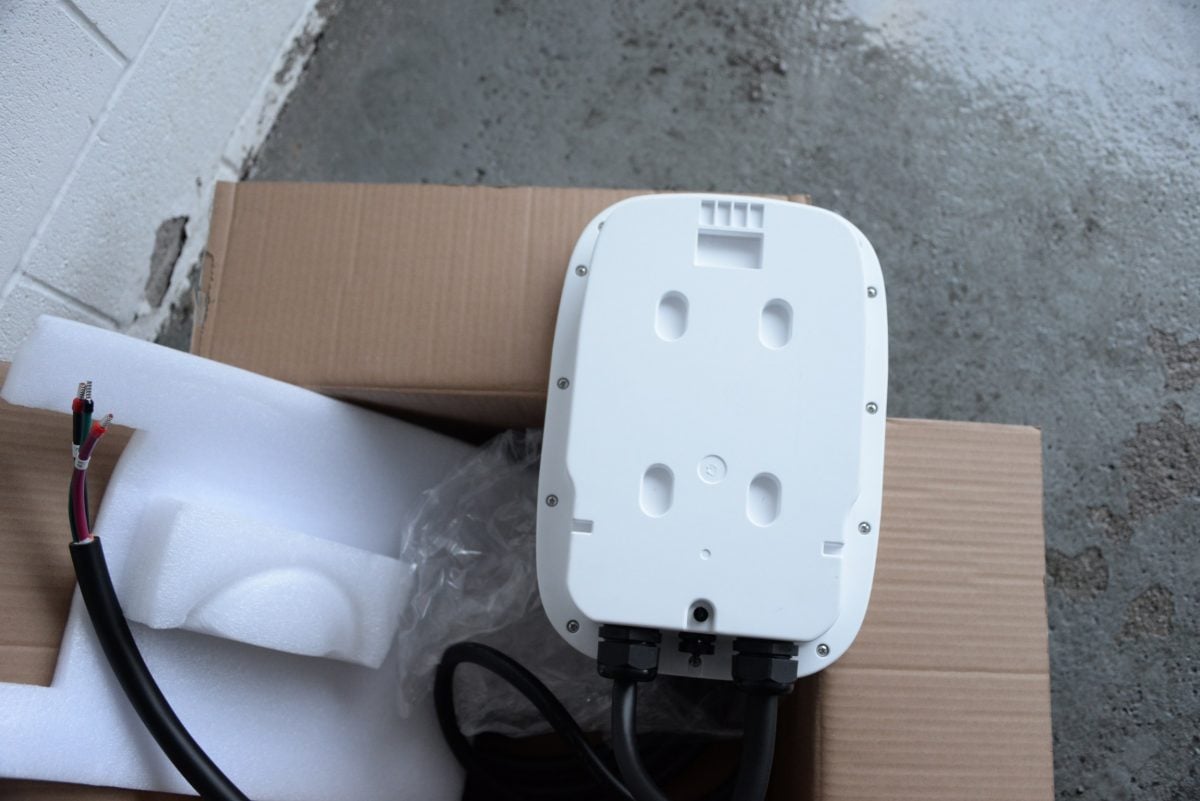

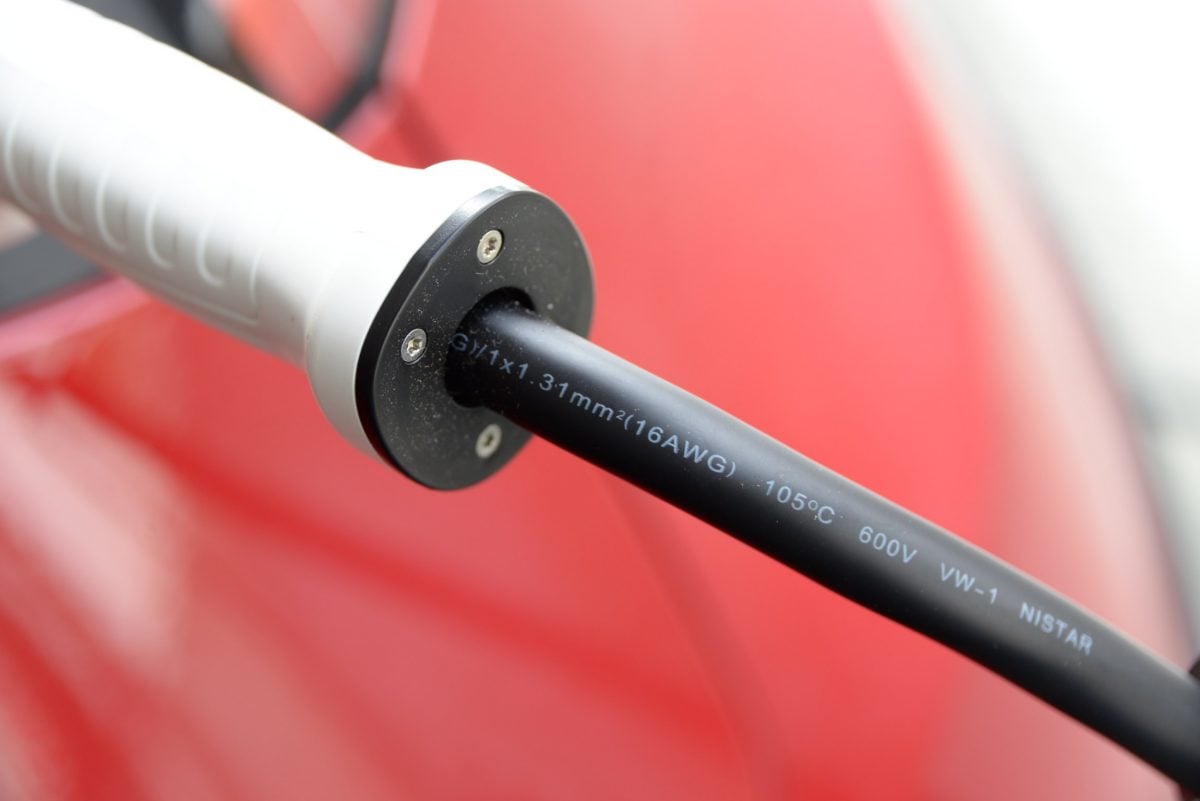
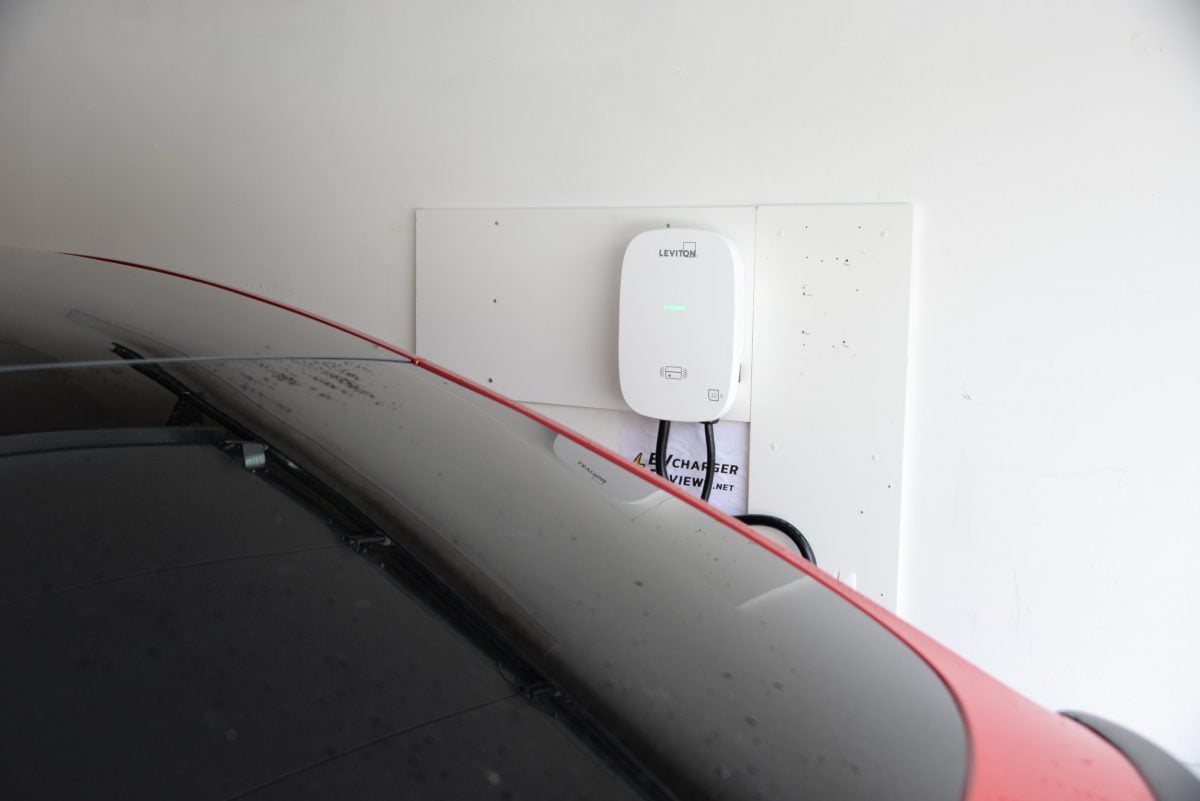
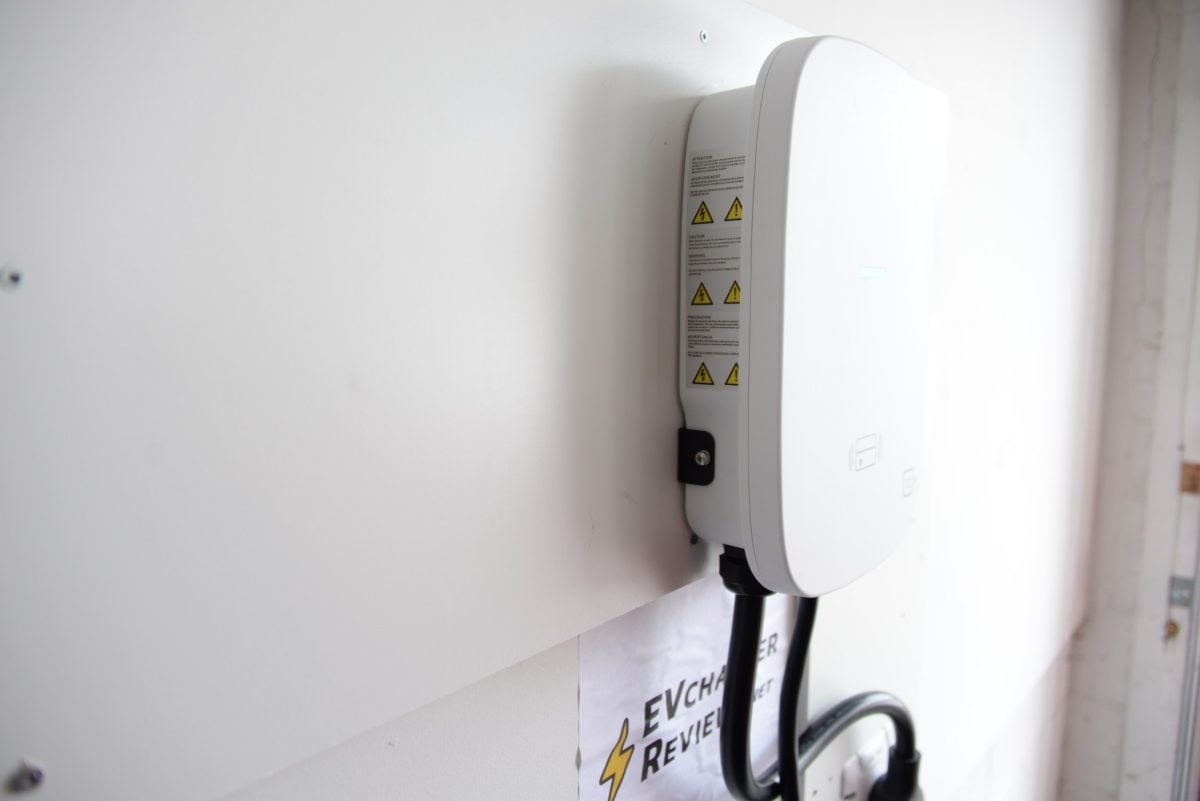
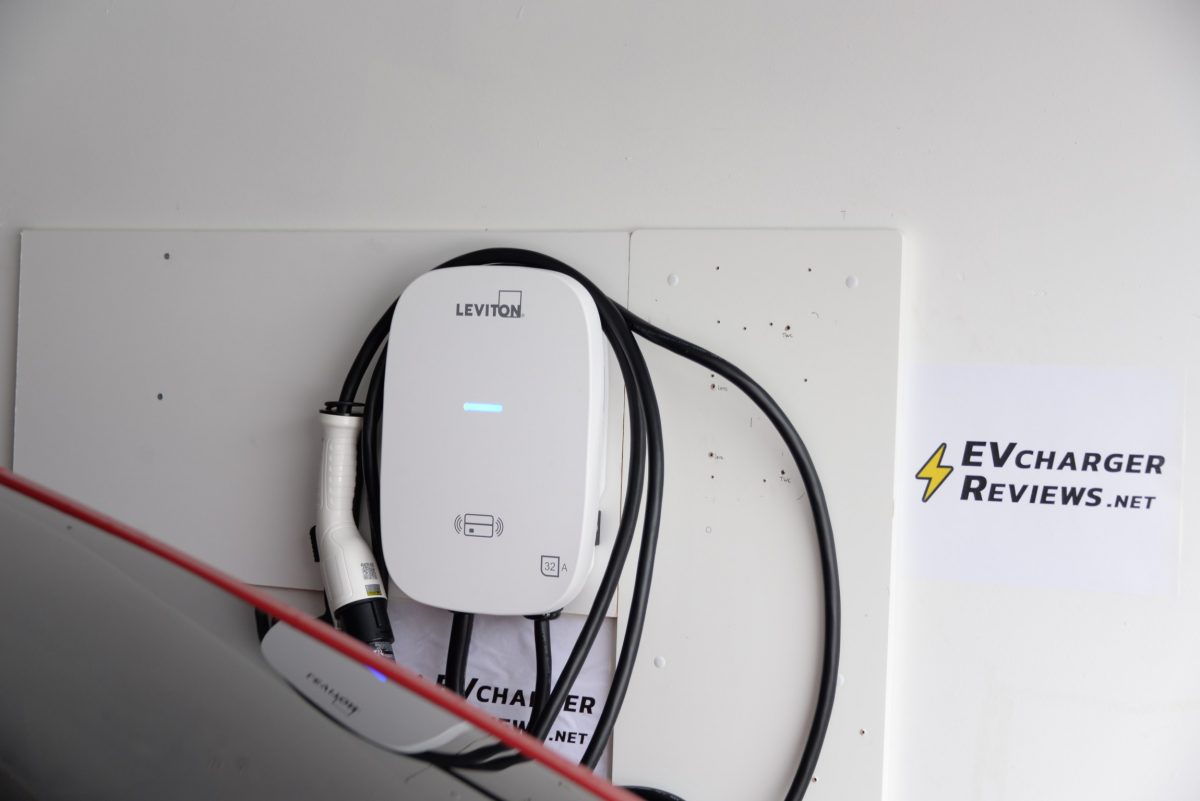
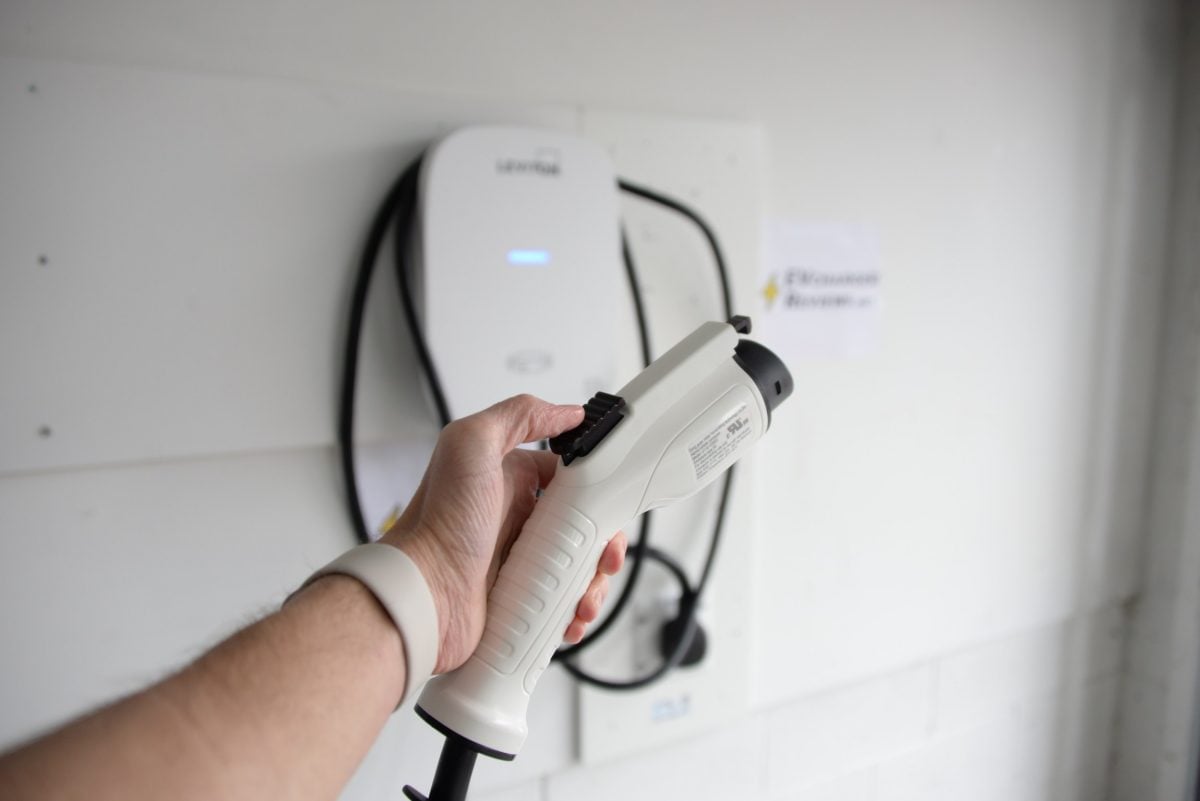

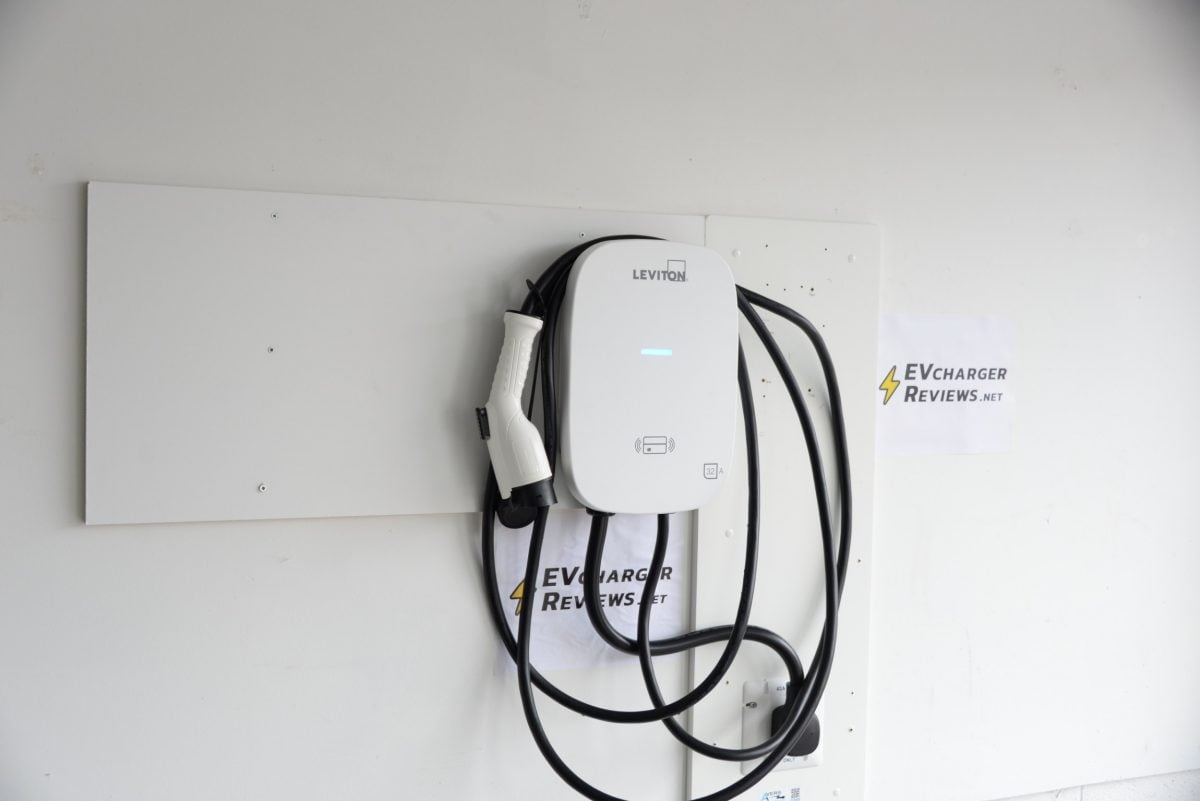
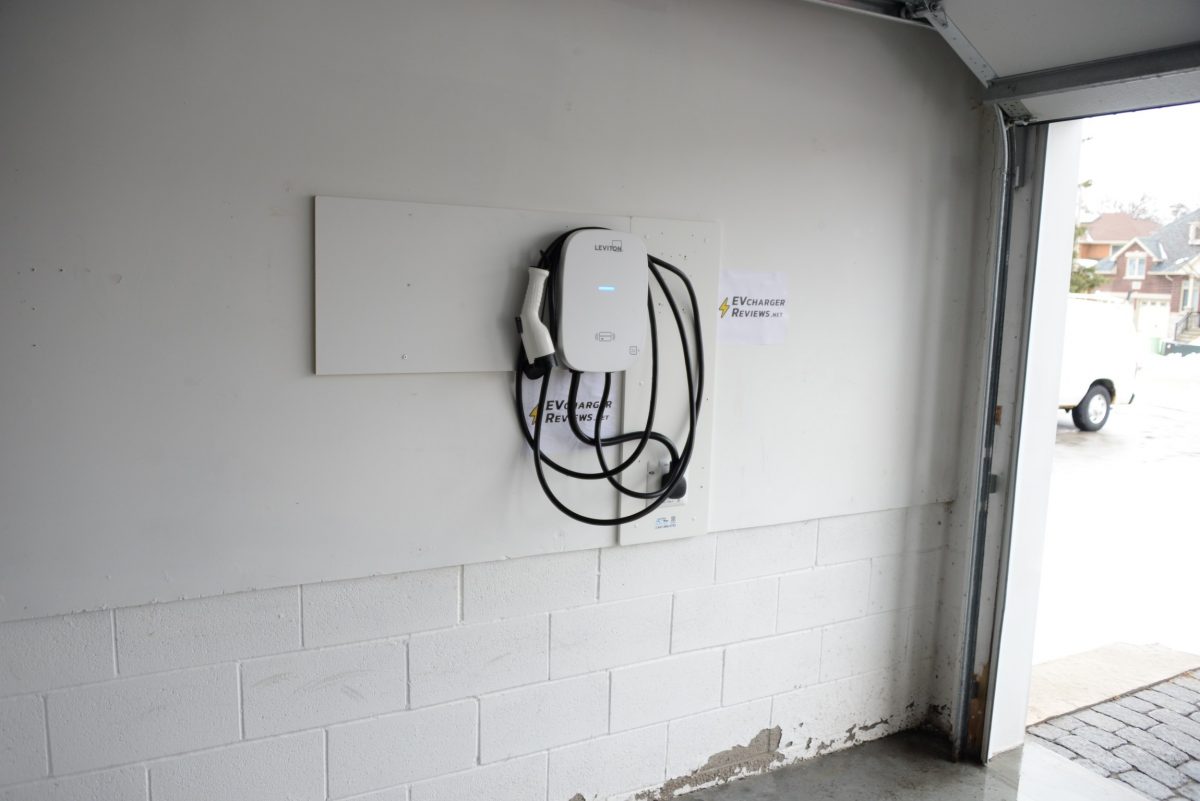
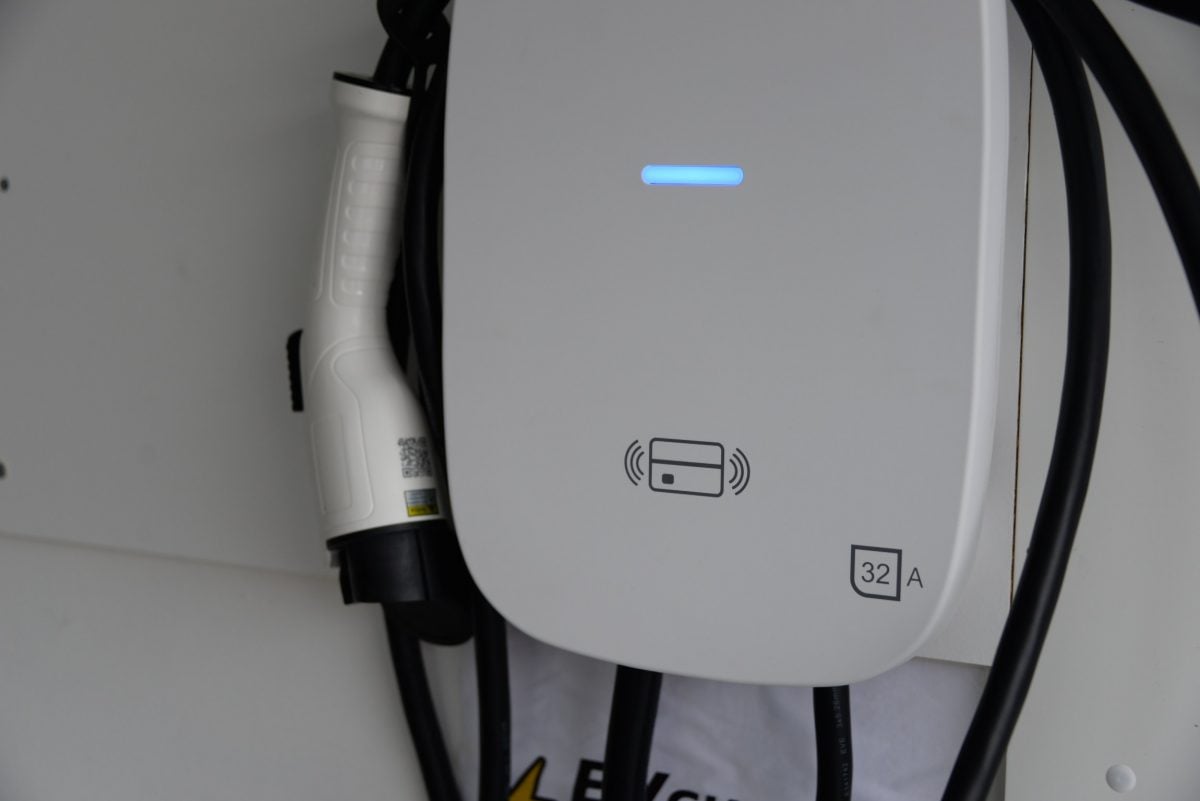

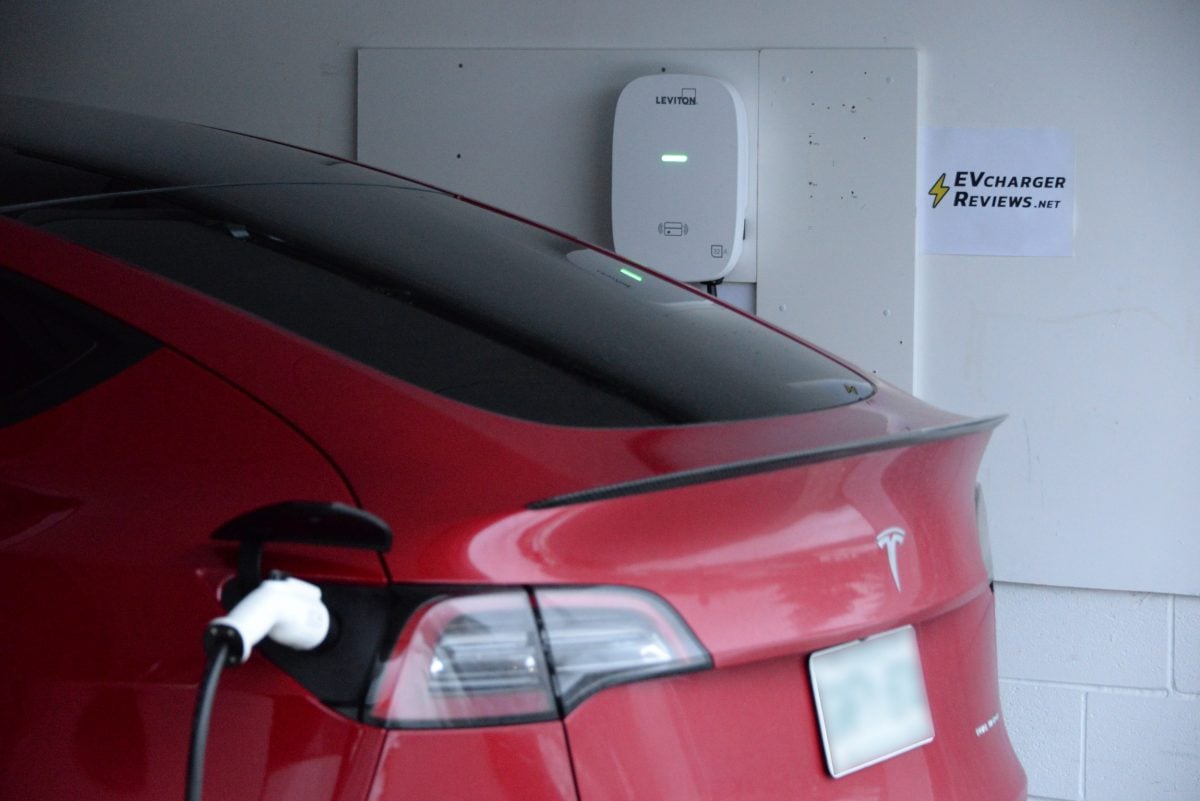




EVchargerReviews.net EVSE Review Methodology
We get the product into our facility, unbox it, inspect it, and install it just like the end user. We have a two-EV car garage with many electric miles accumulating weekly. We take EVSEs through a suite of tests, from short charging sessions, to long overnight charging sessions. We look at whether the claimed features work as expected. We check performance under challenging conditions; does the cord hold up to cold weather? Does the charging station throttle down amps due to heat and thermals? Does the Wi-Fi or Bluetooth drop the connection? Software bugs and glitches will surface during longer-term testing rather than a one-day trial. Measurements are taken on cord thickness and performance, and a thermal camera is used to look for surface hot spots after a 50 kWh stress test.
After living with the charging station product for at least two weeks, we are able to determine how the product compares to rivals, and if it deserves to be recommended to our readers.
Disclosure: Independent review by Michael Kim from EVchargerReviews.net. We participate in affiliate programs, and we may earn income when you use our links. We hope you think that is fair, based on the amount of work that goes into our reviews. Leviton provided a review unit at our request. The conclusions and opinions shared in this article are independent. The EV32W is intended to be hardwired professionally for permanent usage, but we used an AWG 8 input cable to connect to a NEMA 14-50 outlet because we swap EV charging stations frequently.
Considering buying a Tesla? Use our referral link to get $1,000 off, and help support our content.